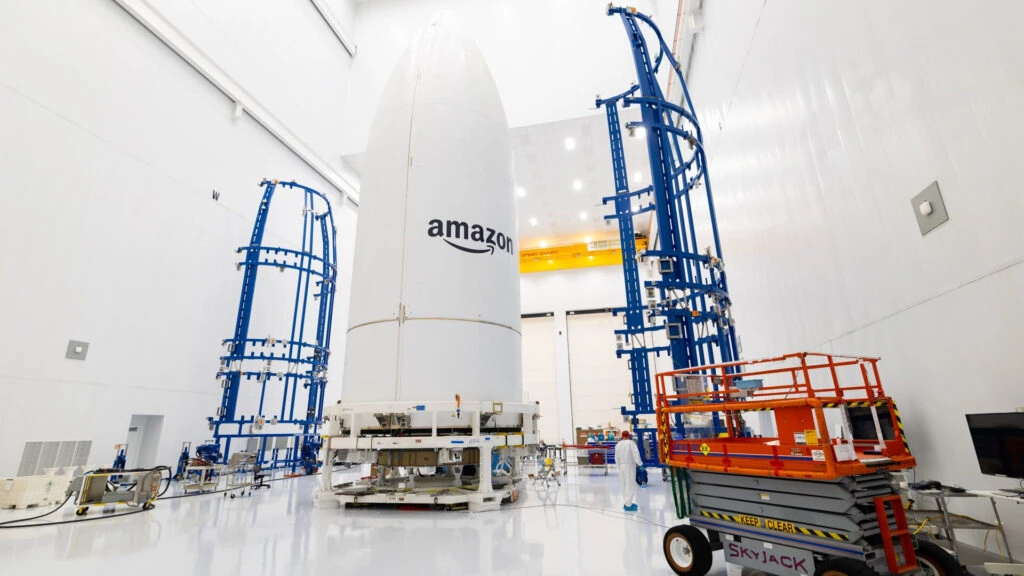Amazon has launched its first internet satellites into space and is thus starting to build a rival to Elon Musk’s Starlink system. In the first step, 27 satellites were launched into orbit.
The system for Internet supply from space, known as Project Kuiper, is to be expanded to around 3,200 satellites in the coming years.
Tech billionaire Elon Musk is a pioneer in fast internet from space with the Starlink satellites of his space company SpaceX. Such services are not only interesting for consumers, but also for airlines, for example – or for telecommunications companies that do not want to build expensive infrastructure in remote or sparsely populated areas.
Amazon has already secured space for Kuiper on dozens of future rocket launches – both with Blue Origin and SpaceX. According to the current operating license, 1,600 Kuiper satellites must be in space by the middle of next year. With his space company Blue Origin, Amazon founder Jeff Bezos is a direct competitor of Musk and SpaceX – albeit a much smaller one so far.
The 27 fully functional satellites have now been launched into space on their second attempt. The first launch attempt of the Atlas V rocket operated by United Launch Alliance (ULA) was postponed a good two weeks ago due to poor weather conditions. In the fall of 2023, Amazon tested the functionality of the system with two test satellites.
Competition desired by many
Starlink now has around 7,000 satellites. However, industry observers certainly see room in the market for rivals, and many customers would welcome more competition in the market. Musk has become a controversial figure in the US government due to his right-wing political views and his role as a cost-cutter for US President Donald Trump.
Musk’s Starlink is also used by Ukraine, where Russian troops deliberately damaged telecommunications networks in their war of aggression. However, the tech billionaire said that he prevented a Ukrainian attack on the Russian Black Sea Fleet by refusing to activate Starlink coverage in the area.
dpa





